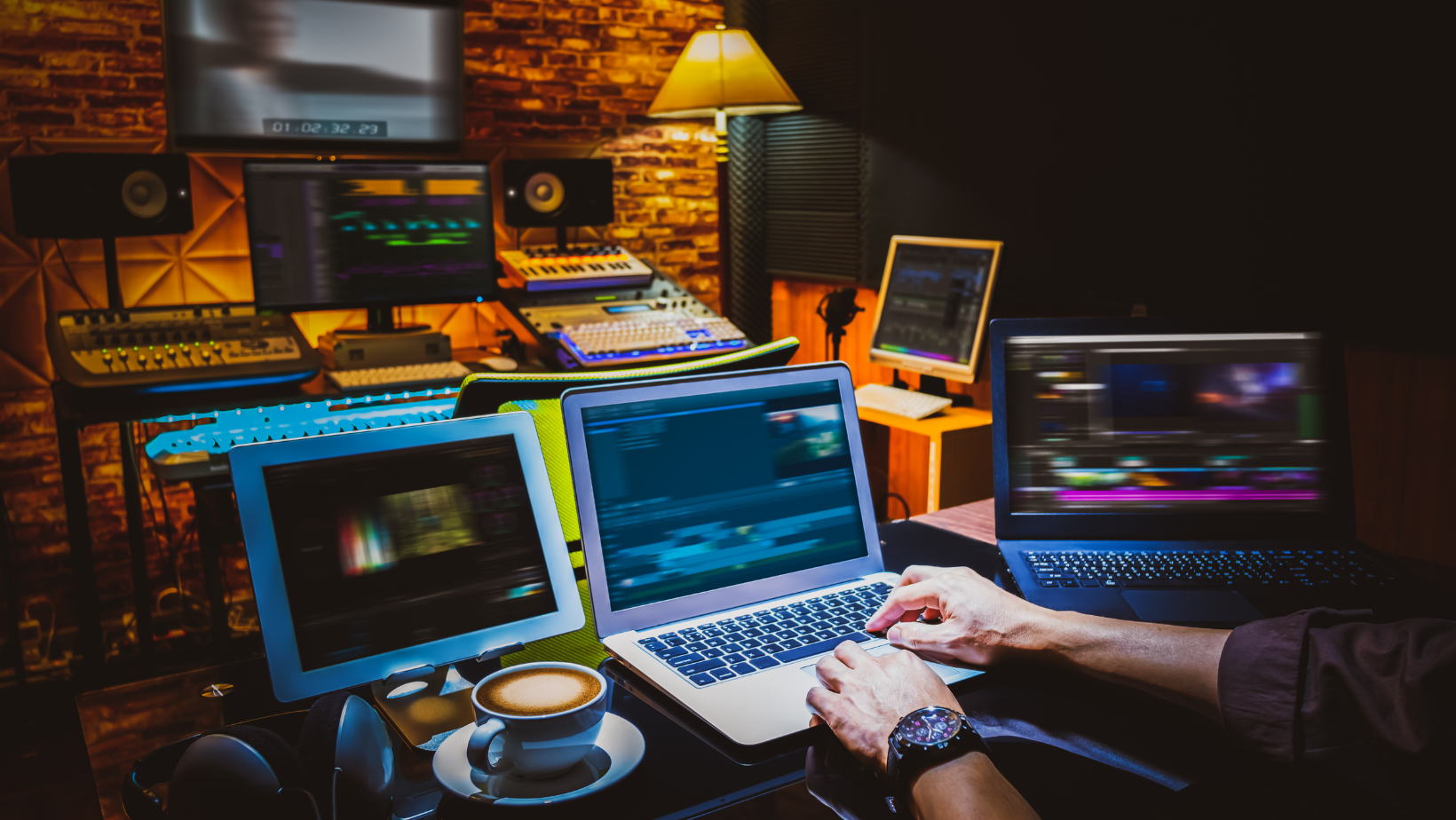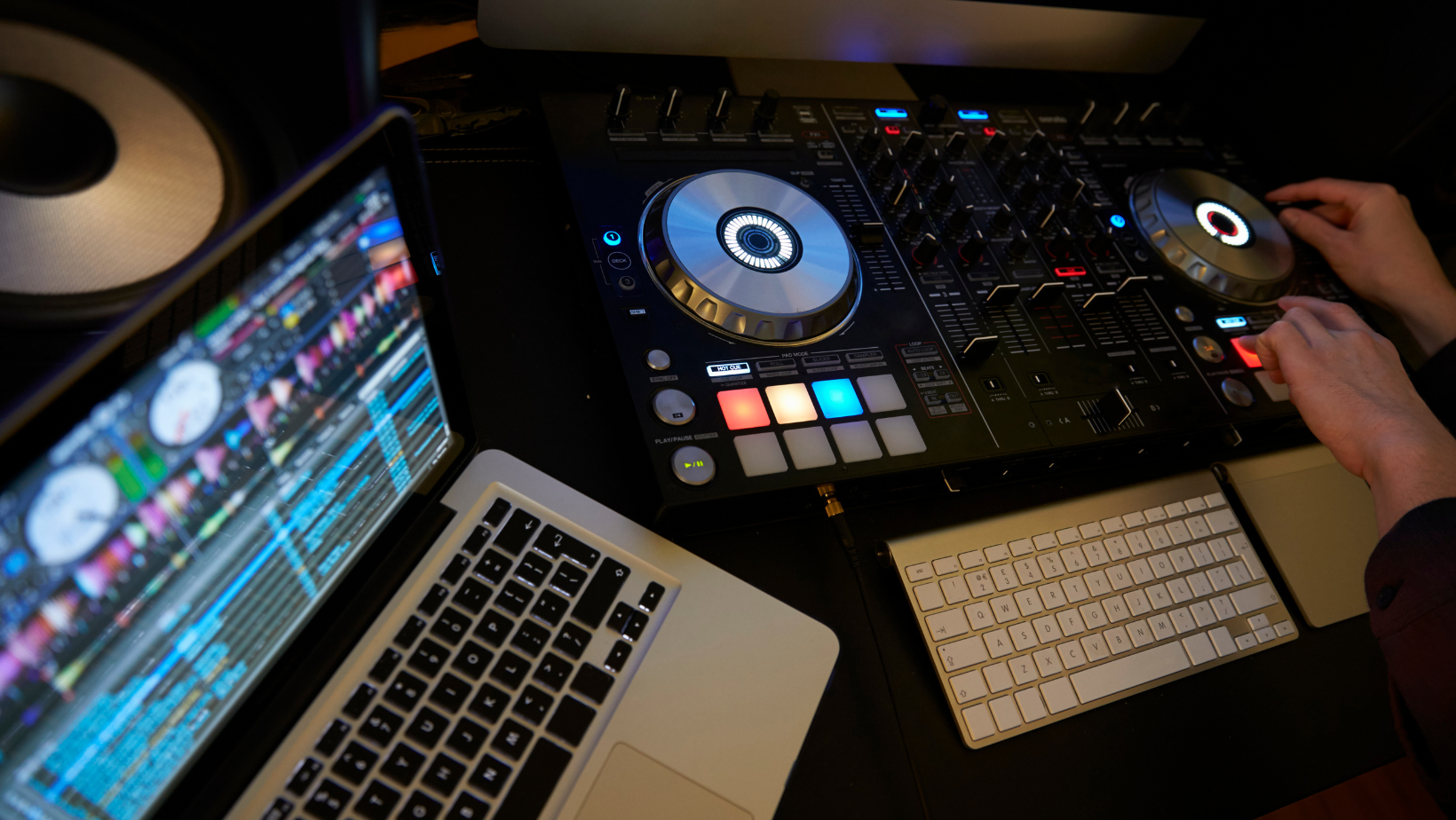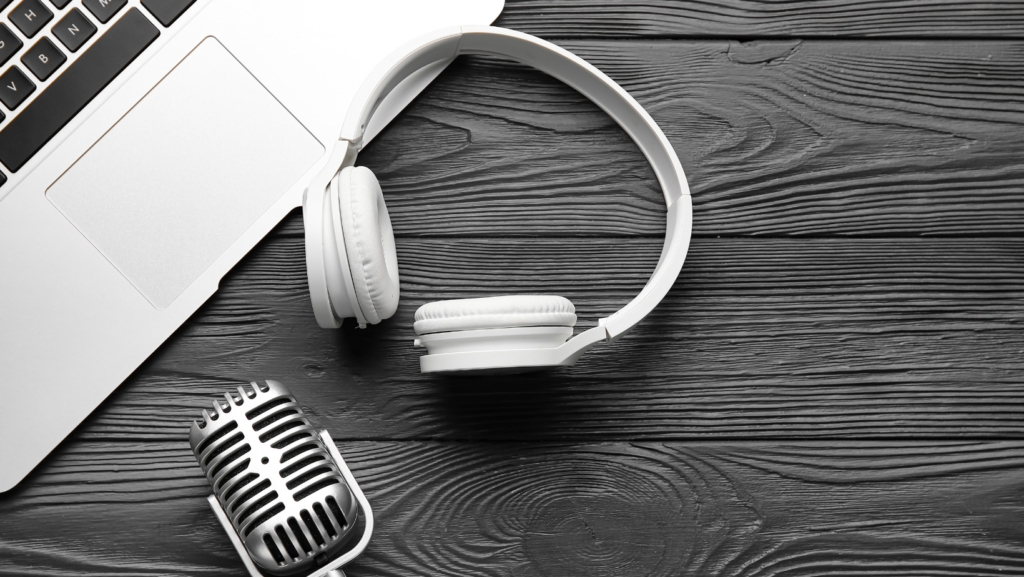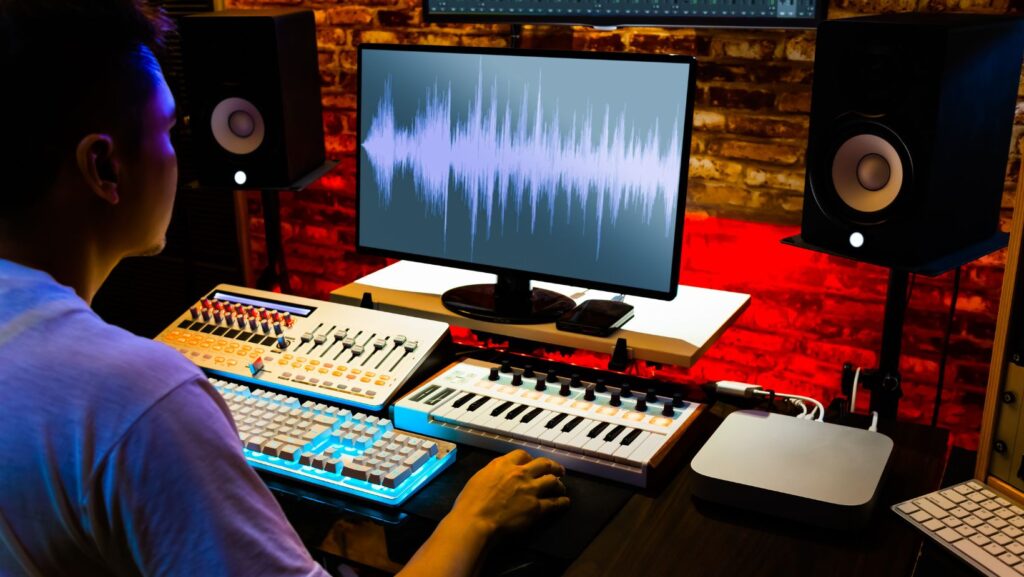This article will guide you through the maze of specs and models, helping you find the best laptops for your music production needs. From processing power to sound quality, we’ve got you covered. Stay tuned as we delve into the world of laptops, tailored for the modern musician.
Best Laptops for Music Production
Dell XPS 15 Analysis
A beast in power and performance, Dell XPS 15 outperforms its peers in the best laptops for music production list. It boasts an impressive 9th gen Intel Core i7 processor, demonstrating stunning resilience even during demanding music productions. With its 16GB RAM, it can handle multiple tracks, and the 512GB SSD ensures quick access to your sound files and projects.
MacBook Pro Analysis

Favored by many music producers and DJs, MacBook Pro stands out as one of the best laptops for music production due to its stable operating system and high-quality audio drivers. It’s armed with a 6-core i7 processor, ideal for running resource-intensive applications. Also, the sleek Retina Display is a bonus for any producer who appreciates quality visuals alongside crisp sound.
HP Spectre X360 makes an excellent choice for those seeking flexibility. Equipped with a 10th Gen Intel Core i7 processor and 16GB RAM, it offers fast and efficient performance. Its unique flip-and-fold design complimented by a 4K display suits producers who value a high-end aesthetic.
Razer Blade 15 Studio Edition Analysis
Designed especially for creative professionals, Razer Blade 15 Studio Edition is another top best laptops for music production. It’s powered by an i7 processor and 32GB RAM which is robust enough to handle demanding music production tasks. The best part? It comes with a 4K OLED touch display and NVIDIA GeForce RTX 2080 graphics card for unbeatable visuals.
Lenovo ThinkPad X1 Extreme Analysis
One can’t overlook the Lenovo ThinkPad X1 Extreme when talking about the best laptops for music production. With its 9th Gen Intel i7 processor and 16GB RAM, it effortlessly balances workflow within music production software. It’s also a lightweight option for musicians who wish to produce and perform on the go.
MSI GL65 Leopard Analysis
Another gaming giant, MSI GL65 Leopard, leverages its power for music production. It showcases an i7 processor, 16GB RAM, accompanied by an outstanding cooling system. With its immersive audio technology, this is one of the best laptops for music production that is much about sound as it is about performance.
Microsoft Surface Pro 7 Analysis
A surprising entrant, Microsoft Surface Pro 7, presents itself as a tantalizing best laptops for music production option with powerful 10th Gen Intel Core i5 processor, 8GB RAM, and robust built-in audio systems. As a 2-in-1 laptop, it offers all the versatility a music creator could want, from recording to performing.
How to Optimize Your Laptop for Music Production
Key Software Tools for Music Production

The use of effective software tools forms a significant part of any music production setup. DAWs, Digital Audio Workstations, form the backbone of any music production suite. Software such as Logic Pro X, Ableton Live, and Fruity Loops Studio (FL Studio) are popular choices. Having heavy-duty specs, such as the ones in the Dell XPS 15, can facilitate seamless operation of these software tools, directly leading to better music production.
Plugin processing forms another integral part of music production. Tools like the Waves suite of plugins or Native Instruments’ Kontakt provide a broad spectrum of sound manipulation abilities, which can significantly elevate the quality of music being produced. The right choice of software tools, optimized for the specific laptop model being used, can significantly improve the overall music production process. The NVIDIA GeForce RTX 2060 in the Acer Predator Helios 300, for instance, can be an excellent companion for handling the visual tasks of these plugins.
Must Know About Best Laptops for Music Production
Choosing the best laptops for music production isn’t just about brand preference. It’s about power, reliability, and the right features. Remember, it’s all about creating a harmonious balance between your hardware capabilities and software requirements. That’s the key to a seamless, productive music creation process.



